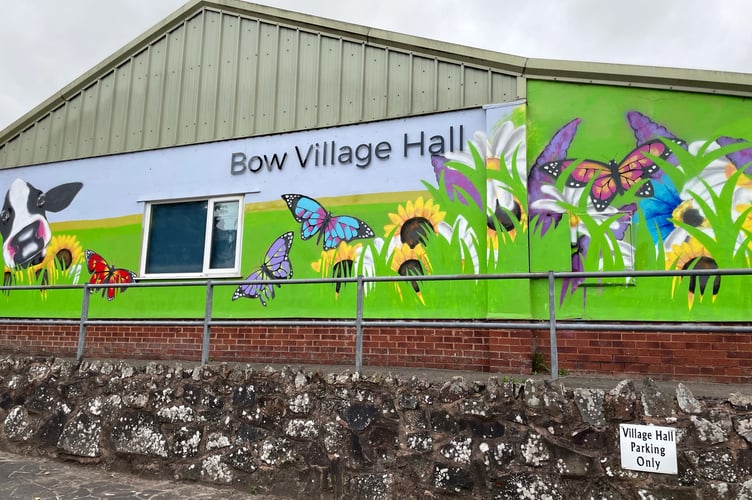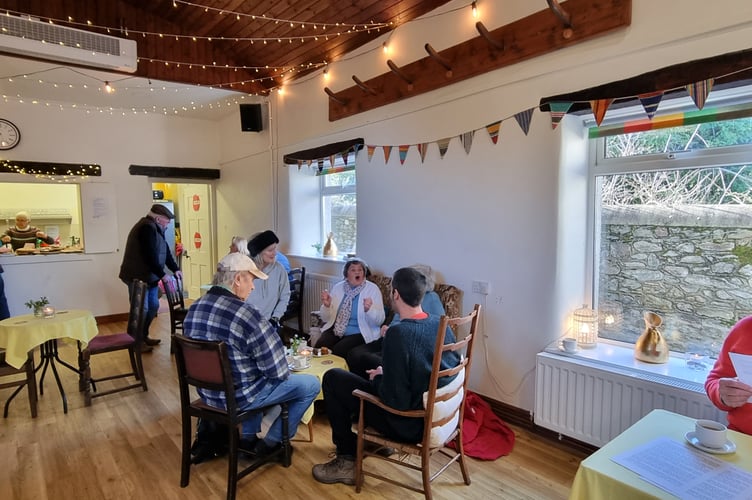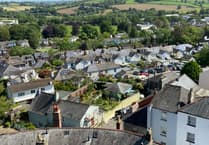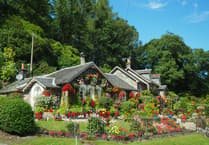THERE are more than 440 Village Halls in Devon, from much-loved historic halls to all-singing, all-dancing new builds and everything in between, all of which provide something unique but equally important to their rural communities.
But what would the impact be on rural communities if village halls were allowed to decline and permanently close?

That’s the question being posed in a new report by independent charity Devon Communities Together (DCT), which over the past year has visited and audited 290 halls (with visits continuing into 2024) as part of a first-of-its-kind initiative to create a Community Asset Map of Devon’s Village Halls.
Thanks to funding from DEFRA, Devon County Council and NHS Devon, the DCT team set out to uncover the challenges these community facilities are facing, as well as their potential to offer even more to their communities - with appropriate support.

The recently published “End of Year One Report” (available at: www.devoncommunities.org.uk/village-halls-and-community-buildings) brings together the evidence and insights gained from the first 290 participating Halls.
Most Halls have a 50 per cent or less occupancy rate
A total of 65 per cent of the halls audited so far are occupied 0-50 per cent of the time, with only 10 per cent being booked more than 75 per cent of the time.
With evidence showing that 56 per cent of halls derive more than half their income from bookings, there’s a clear opportunity to support Halls to increase their bookings to become more financially stable, with the report identifying business and marketing support along with sufficient funding for necessary repairs and upgrades as necessary to help under-occupied halls to keep going.
More younger volunteers are needed
More than 100 of the visits to the Village Halls so far have involved discussions about a lack of “new blood” on the volunteer management committees, with many volunteers carrying on beyond their intended period due to a lack of a clear succession plan.

It was widely felt that encouraging younger people to help out was difficult but necessary.
Comments included: “A lot of older people in the village feel they’ve already done their bit” and “People don’t seem to have the ambition to be involved and muck in.”
A need for greater training and support around recruiting volunteers and general governance issues was identified.
A committee member from South Pool Village Hall said: “Most people are retired and getting elderly, whilst they are keen to help, there are limits to what can be expected of them.
“Second homeowners do come along to events when they are in the village, but they are away the majority of the time. There are not enough young people around to help.”
Sustainability is an ambition but not yet a reality
A total of 51 per cent of the audited Devon Village Halls currently have electric heating, 30 per cent use gas, 16 per cent use oil, eight per cent use solar electric and one per cent use biomass.
There was a willingness to try and become more “green”, but often cost was a barrier.
As one committee member said: “We tried to do electric vehicle charging points, but we couldn’t get the funding.
“We’d love to have solar panels and have applied two or three times but didn’t get the funding. We have a very large south facing roof so we could even potentially provide some electricity to the village.”
The report recommends that additional resources are required for specialist advice and support to enable environmental sustainability improvements to happen on a wide scale, which would not only have a local impact but would also contribute to Devon’s published commitment to be Net Zero by 2050.
Health and wellbeing hubs
The Halls themselves identified numerous activities they already provide to support their communities’ health and wellbeing, from coffee mornings to reduce loneliness, to exercise and relaxation classes, groups for new parents and many more.

Along with these community activities, DCT also investigated the potential for Village Halls to host confidential health appointments, as a way of breaking down the barriers often caused by the physical distance between rural communities and healthcare providers.
These appointments could be online (with suitable equipment and help for those with fewer digital skills) or in-person, in confidential spaces.
The audit found that 41 per cent of Devon Village Halls do have a confidential space with the potential to be used for remote or online medical appointments, but of these, only 31 per cent have Wi-Fi and only six per cent of halls with Wi-Fi and a confidential space also have appropriate IT equipment.
The report recommends greater funding for equipment and volunteer training to maximise this opportunity to enable more people in rural locations to access healthcare locally.
The full report from DCT shares evidence on all the areas it audited, including those not mentioned above, like inclusion and accessibility, social media use, hall capacity, role in community resilience and financial status, all of which demonstrate a clear picture of hardworking volunteers seeking to overcome challenges and with ambitions to do even more for their communities.
Charlotte Squire, Project Manager at DCT, which has more than 60 years’ experience in supporting Devon’s Village Halls and Community Buildings, said: “With diminishing local services such as shops, banks, Post Offices – even GP surgeries – in rural locations, Village Halls present a huge opportunity to ‘step into the breach’ and provide access to vitally important services to people who may otherwise struggle to reach them.
“In many cases this is already starting to happen. We uncovered lots of encouraging examples of halls diversifying to provide what their community needs, including a Post Office, holiday club, repair cafe, food hub, cancer support group and many more.
“But all of these halls are volunteer-led and struggling like everyone else with the Cost of Living Crisis and big energy bills, along with inconsistent digital access, a lack of volunteers, skills gaps and underfunding – to name just a few.
“We hope this report will do two things: firstly, make people stop and think about the true value of Devon’s Village Halls and the dire consequences for rural communities if they were to close; and secondly, to help people understand what support is needed for these Halls to not only carry on, but grow and develop to bring more vital services into these communities for the benefit of everyone living there.”
The DCT team is planning to visit as many of as-yet-unaudited halls in the coming months as possible, with a further report due out in 2024.
Any halls that are audited from now until December 12, 2023, will also be entered into a prize draw! The top prize is £500, with second and third prizes of £300 and £200 respectively, to be used by the winning hall.
The first prize draw winners were announced in June, you can read more here: https://www.devoncommunities.org.uk/news/first-ever-devon-village-hall-audit-prize-draw-winners-are-announced .
If you are involved in a Village Hall based in Devon and have not yet received a visit from Devon Communities Together, please email: [email protected] or telephone 01392 248919.
You can also contact Charlotte for any additional information about the report or the Village Hall Community Asset Map project.




